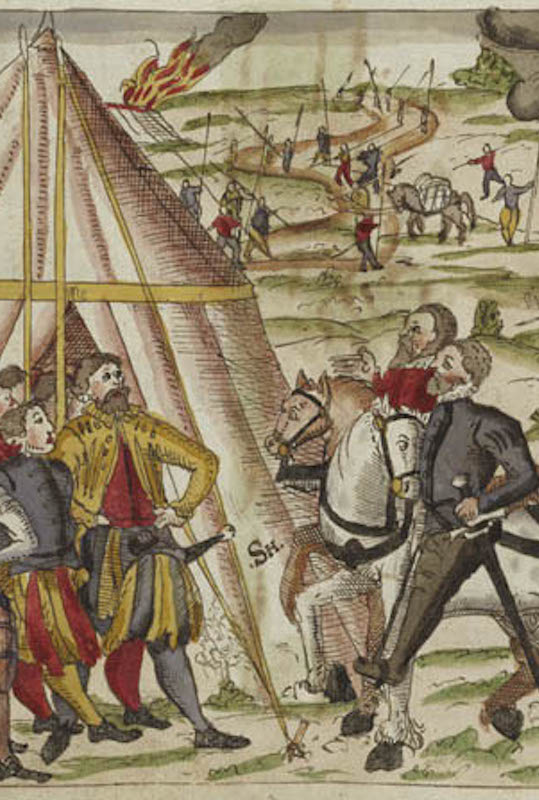
Friendly visits
The Great Peasants' Revolt (1524-1525)
The princes’ response to the revolt was hampered by lack of funds and reliable soldiers. Monasteries were “encouraged” to provide loans lest the rebels destroy them. Wherever disaffection was widespread, local rulers organized patrols by small groups of horsemen. Regular visits to villages and markets, accompanied by “friendly warnings,” served as a deterrent. The peasant army was large but poorly equipped. Its leaders believed that their actions were in accordance with the gospel and divine justice. A black, red, and yellow flag was stitched together and a weekly contribution of coins financed secret dispatches throughout Germany inciting a general uprising.

As seen on
A man of conscience: Luther's Reformation




